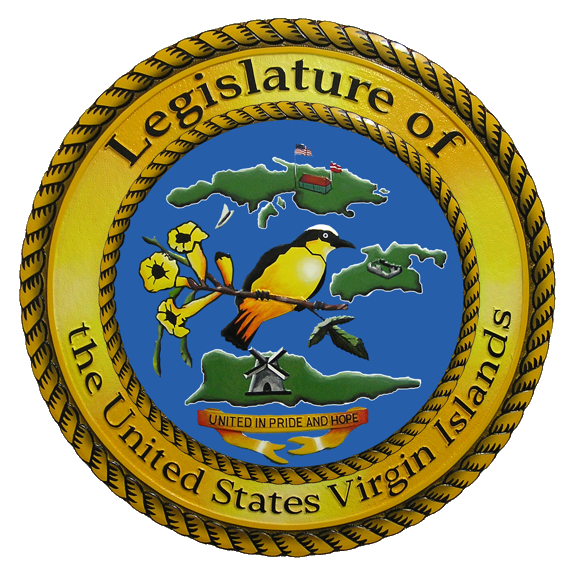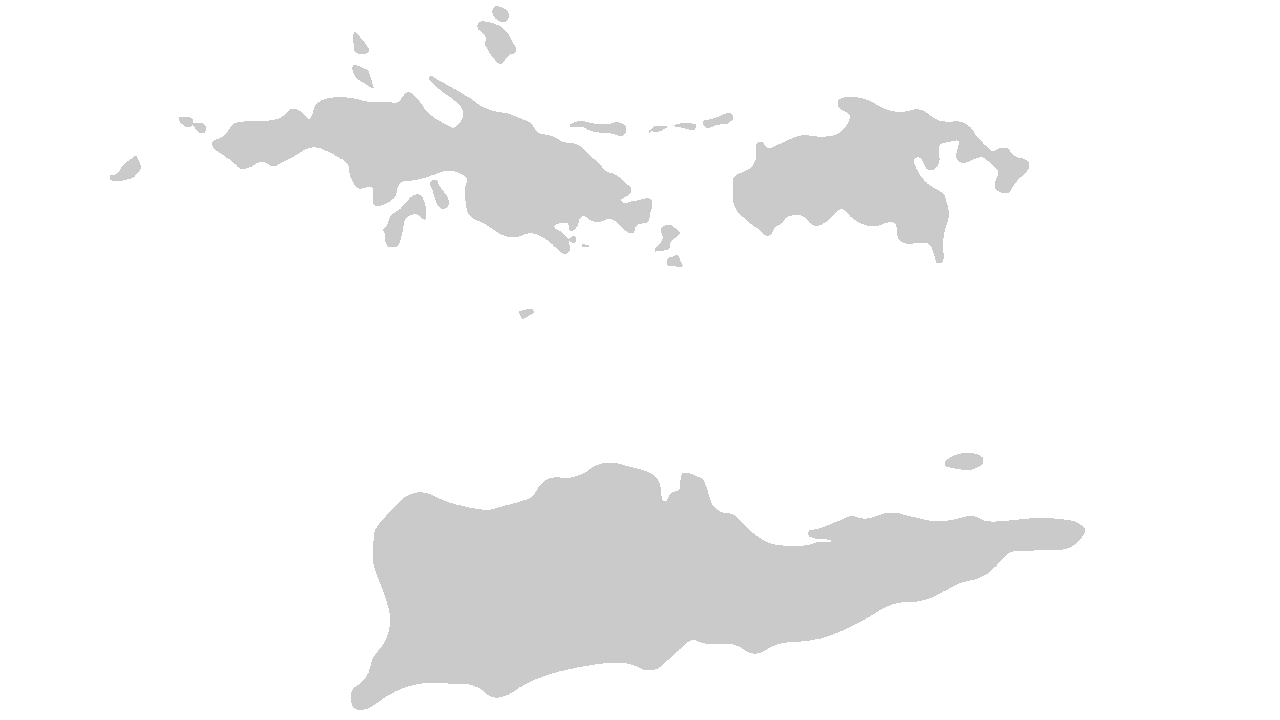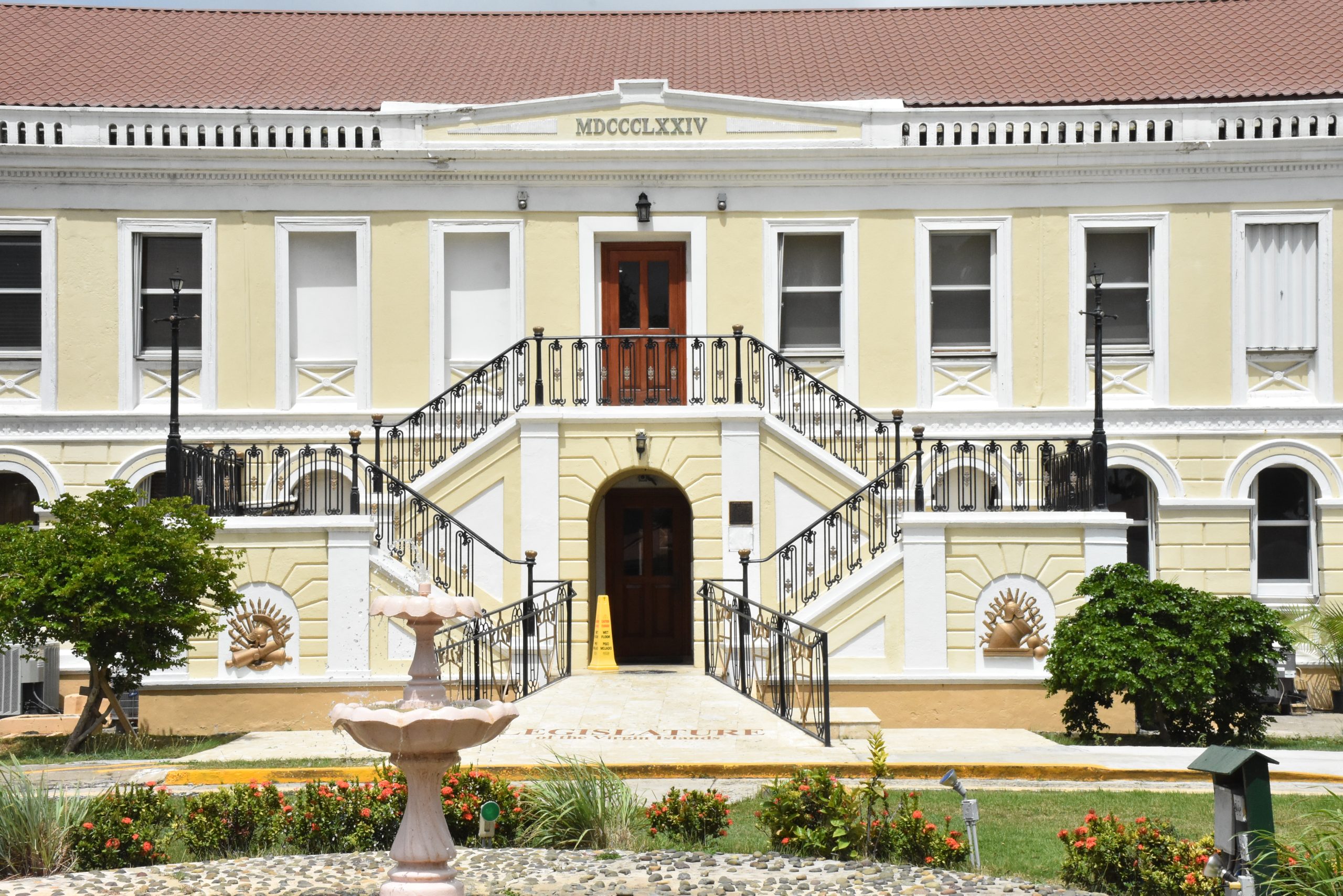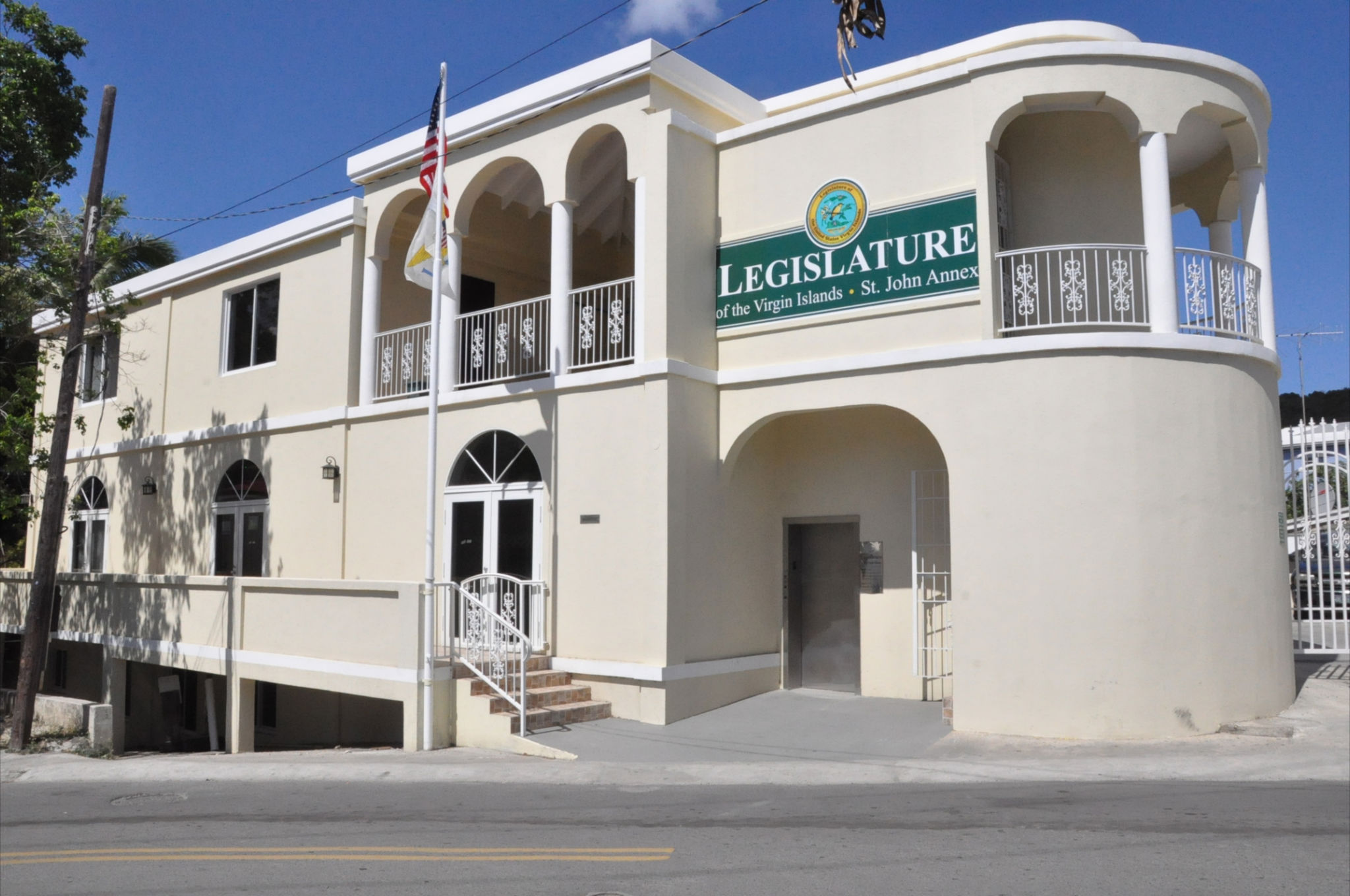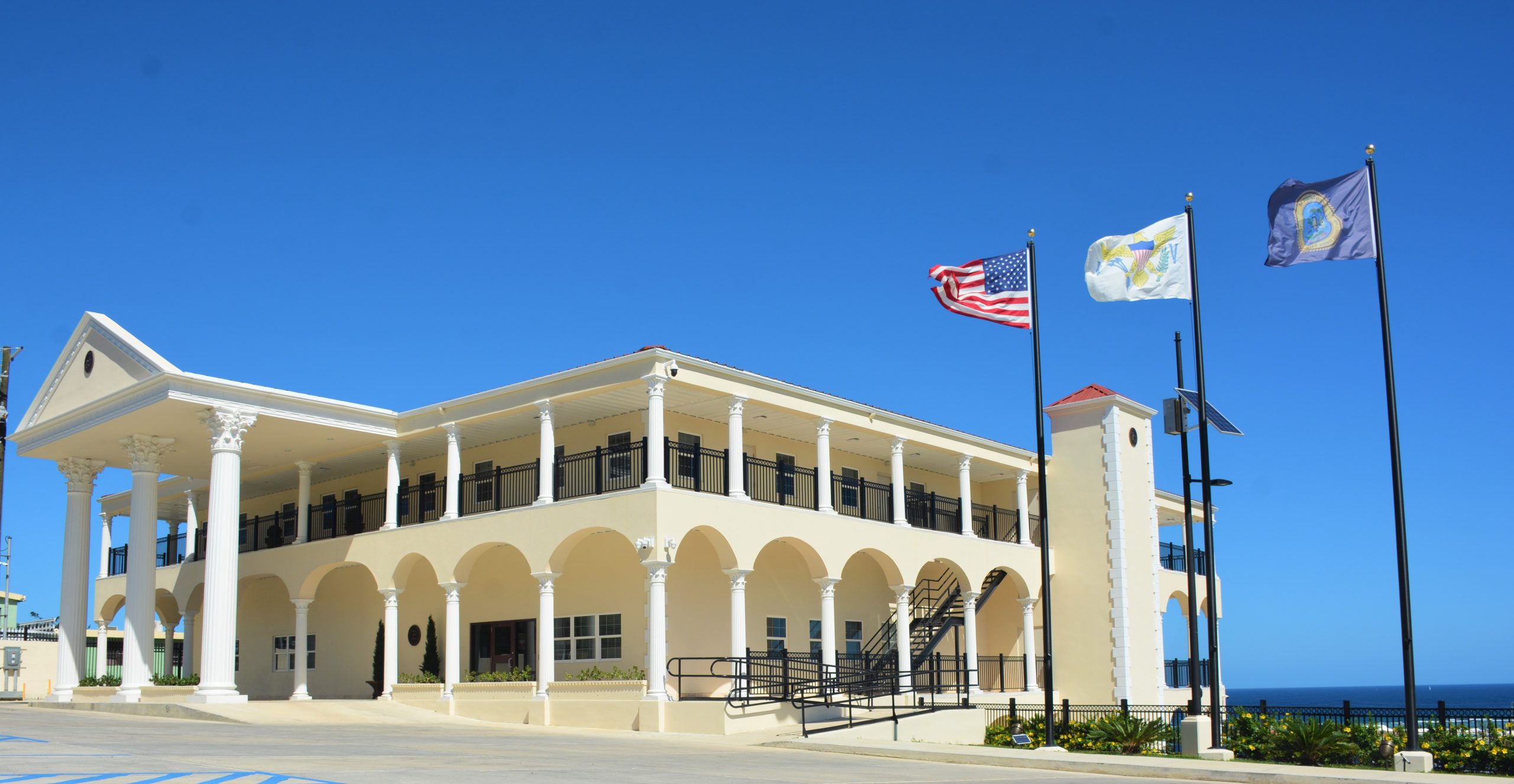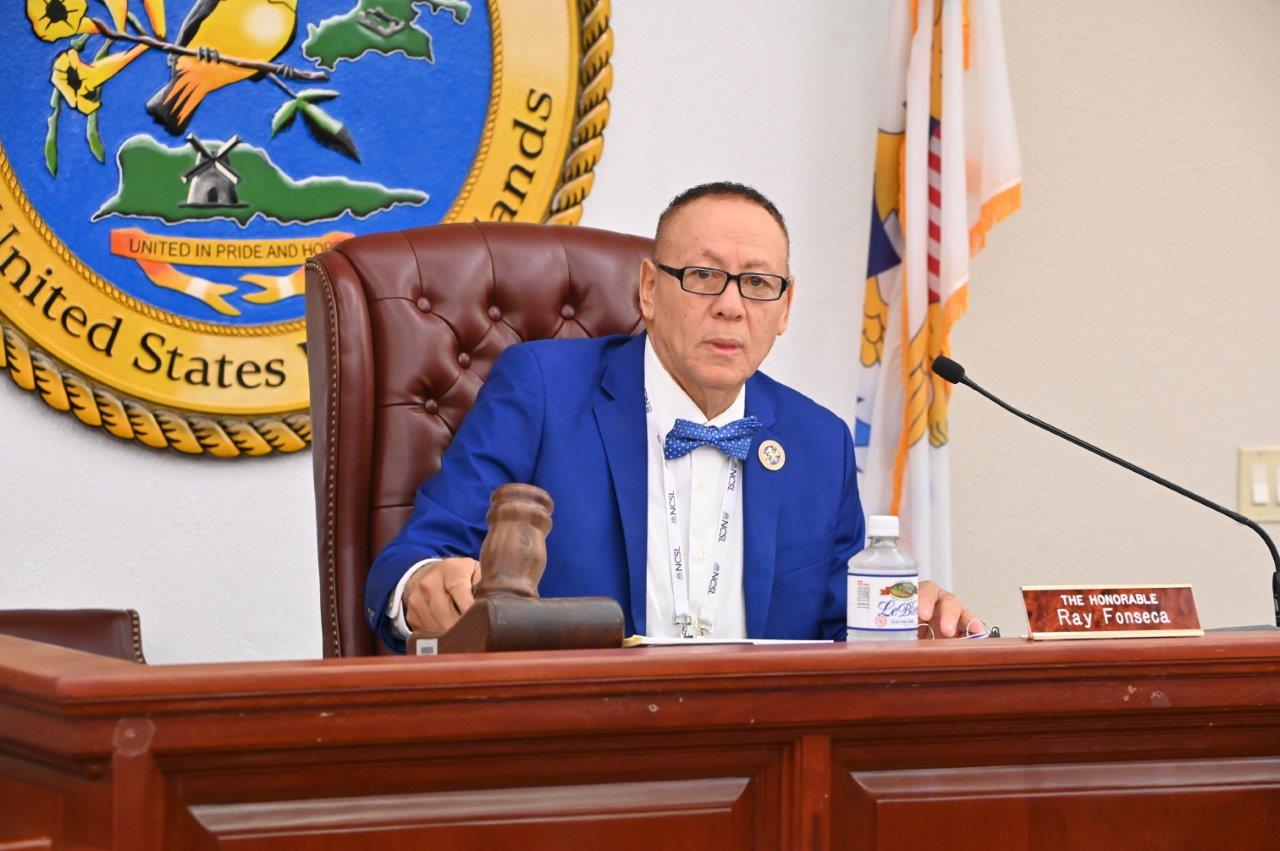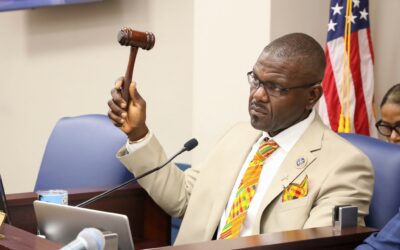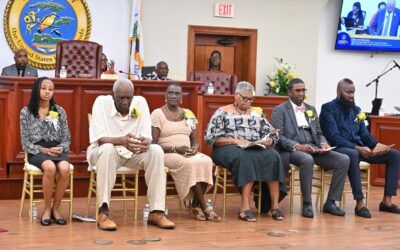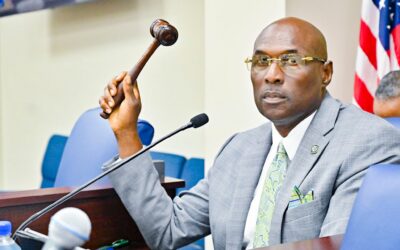ST. THOMAS – The Committee on Health, Hospitals, and Human Services, under the leadership of Senator Ray Fonseca convened in the Earle B. Ottley Legislative Hall. Lawmakers received an update from the Department of Human Services on all related programs or divisions under their purview to include but not limited to; Children & Families Services, Residential & Interstate Compact Affairs, Intake & Emergency Services, Intervention & Prevention Services, Senior Citizen Affairs, Childcare & Regulatory Services, Disabilities and Rehabilitation Services, Family Assistance, Head Start, Medicaid, and Facilities Renovations & Operations.
Averil George, the Commissioner Nominee for the Department of Human Services delivered testimony. George delivered testimony detailing various offices in the agency. The Department of Human Services is comprised of fifteen divisions with eighty-four programs within these divisions.
The Office of Intake and Emergency Services has the primary function of receiving and responding to all reports of all suspected child maltreatment. The biggest challenge in the department is staffing, especially in the St. Thomas- St. John District. Social workers are needed, and vacancy announcements have not attracted staff. According to testimony delivered by George, an additional challenge is the community’s misconception that Human Services has the right and responsibility to become in all matters involving children. The department is only allowed to be involved in matters where there is legal authority to do so. The department plans to launch public education plans to inform the public of the roles of programs at the department, as well as addressing the retention of social programs. The department is also currently providing internship opportunities at several universities, including the University of the Virgin islands in its BSW and MSW programs.
Chair Fonseca stated that the Department of Human Services faces challenges, but it was the job of the legislature to help.
The Division of Interventions and Prevention Services, which was previously known as the Division of Juvenile Justice, seeks to provide services to children and youth who are at risk of being involved in the juvenile justice system. There are two intervention offices, one in each district which are staffed with a district manager and workers that provide case management and service planning for youth who remain in their homes as well as those youth remanded to the YRC. The biggest challenge in the department is the inability of parents to participate in services and activities designed to impact the lives of their youth. The Office of Residential and Interstate Compact Affairs manages and monitors the services of clients in residential facilities inside and outside of the territory. The staff in this office work with the assigned worker in the appropriate unit that Is working on their behalf. The cost of the contracts for these services is a challenge and the costs increases constantly.
The Office of Head Start administers the Head Start Program in the US Virgin Islands. Head start promotes school readiness for children who are three years old by December 31 and up to five years old at enrollment from low-income families. The program reserves 10% of slots for children with special needs. The funded enrollment in the territory is 794. The program is currently managing six construction projects on all three islands that are in varying stages of construction and demolition. This will result in new state-of-the-art facilities. The Division of Childcare and Regulatory Services manages and monitors licensing of all childcare facilities in the territory, ensuring safe and high-quality early childhood care and education environment in the territory. Key services areas in the Office include the licensing unit, the quality improvement unit, and the subsidy resource and Referral Unit. The territory has had an issue with fully expensing federal funds given related to the COVID 19 pandemic. The territory is implementing increased subsidy rates for all childcare providers that are CCDF (Child Care Development Fund) participants.
The Division of Senior Citizens affairs operate eleven programs in addition to the Office of the Administrator, who are dedicated to supporting the elderly community in the USVI. These programs include Socio-Recreation, Homemaker Services, Senior Community Services Employment Program (SCSEP), Retired Senior Volunteer Program (RSVP), Family Caregiver Support Program (FCSP), Foster Grandparent Program (FGP), State Pharmaceutical Assistance Program (SPAP), Adult Protective Services (APS), Information and Referrals (I&R), Elderly Nutrition Program (commonly known as Meals on Wheels), and Homes for the Aged. The Elderly Nutrition Program, or Meals on Wheels has developed a plan to expand operations to additional people in the territory, while submitting a federal funding request for additional funds to support it. The VIDHS socio-recreation program operates three senior centers in the territory that gives those sixty and older the chance to socialize, interact, and experience the companionship of their peers. There are two long-term residential facilities for the elderly in need of 24-hour care.
The Division of Family Assistance provides timely and accurate food cash energy and family support assistance to Virgin Islands residents through the operation of nine units. These include Certification, Front End, Issuance, Claims, Fraud, Jobs Opportunity and Basic Skills Program, Personal Responsibility Education Program, Supplemental Nutrition Education Program. This division is responsible for programs such as SNAP and TANF. The division is beginning to launch the Low-Income Household Water assistance program to provide financial assistance to qualified individuals to purchase of pay water bills through the Water and Power Authority, or registered water haulers. SNAP households in the territory received an increase in their benefits. The Virgin Islands raised the gross income limit from 130 % to 175% of federal poverty income guidelines for Categorically Eligible SNAP Households.
The Medicaid Program provides health insurance coverage to qualified residents of the US Virgin Islands through combined federal and local funding. Eligible groups include low-income adults, children, pregnant women, aged adults, and people with disabilities that meet financial and non-financial criteria, such as residency, immigration status and citizenship. As of October 2023, there are 28,066 enrolled members with the VI Medicaid Program. There are 1,357 providers enrolled in the VI Medicate Program. 375 providers are in territory, and 982 are out of territory. The department is currently working on initiatives that would improve operations. These includes electronic visit verification, and provider enrollment applications. A plan has been submitted to CMS for the use of an additional $6.3 million to the territory for technology implementations.
The COVID-19 Public Health Emergency ended on May 11, 2023. The Department had to pivot and unwind the benefits and flexibilities that were offered in the past three years. Unwinding will refer to the resumption of regular eligibility of and enrollment operations. The Department has already seen a decrease in support services and funding that was received during the pandemic. At the end of the public health emergency, states and territories must initiate all renewals.
DHS is responsible for the distribution of funding to thirty-eight subgrantees for FY 2024. The Division of Non-Profits and Support Services works closely with the non-profits funded through the GVI miscellaneous and Crisis intervention Funding. Advances for Fiscal Year 2024 include an increase of 22% in Youth Services Appropriations that funds thirteen youth services programs, an increase of 20% funding ten homeless services programs, increased funding for services for disabled youth and adults, substance abuse residential treatment, and domestic violence services providers. The Department has also collaborated with the Office of Disaster Recovery to seek and increase funding through FEMA public assistance and hazard mitigation grant to enhance disaster recovery projects. The department also has prudent replacement pending, the Knud Hansen Complex at $128 Million, and Herbert Grigg at $131 Million. The Queen Louise Home has already been obligated at $66.8 Million, as well as repairs to the St. John Multipurpose center at $2.3 Million.
Fonseca also implored staff at the Department to be creative when it came to vacancies at the department. Fonseca stated that it was the most important department in the Government, as it deals with people from birth to the grave.
The Department of Human Services has 682 employees in the territory. There are 371 employees in the St. Croix District and 311 in the St. Thomas – St John District. Sixty employees were hired in Fiscal Year 2023. Thirty-three employees left the agency in the same period. To date, fourteen employees have been hired in Fiscal Year 2024.
Senators present at today’s Committee hearing included Ray Fonseca, Kenneth L. Gittens, Marvin A. Blyden, Samuel Carriόn, Diane T. Capehart, Dwayne M. Degraff, Novelle E. Francis, Jr., Donna A. Frett-Gregory, Marise C. James, and Milton E. Potter.
The Division of Public Affairs is committed to providing the community with accurate information on legislative proceedings and other events at the Legislature of the Virgin Islands.
####
